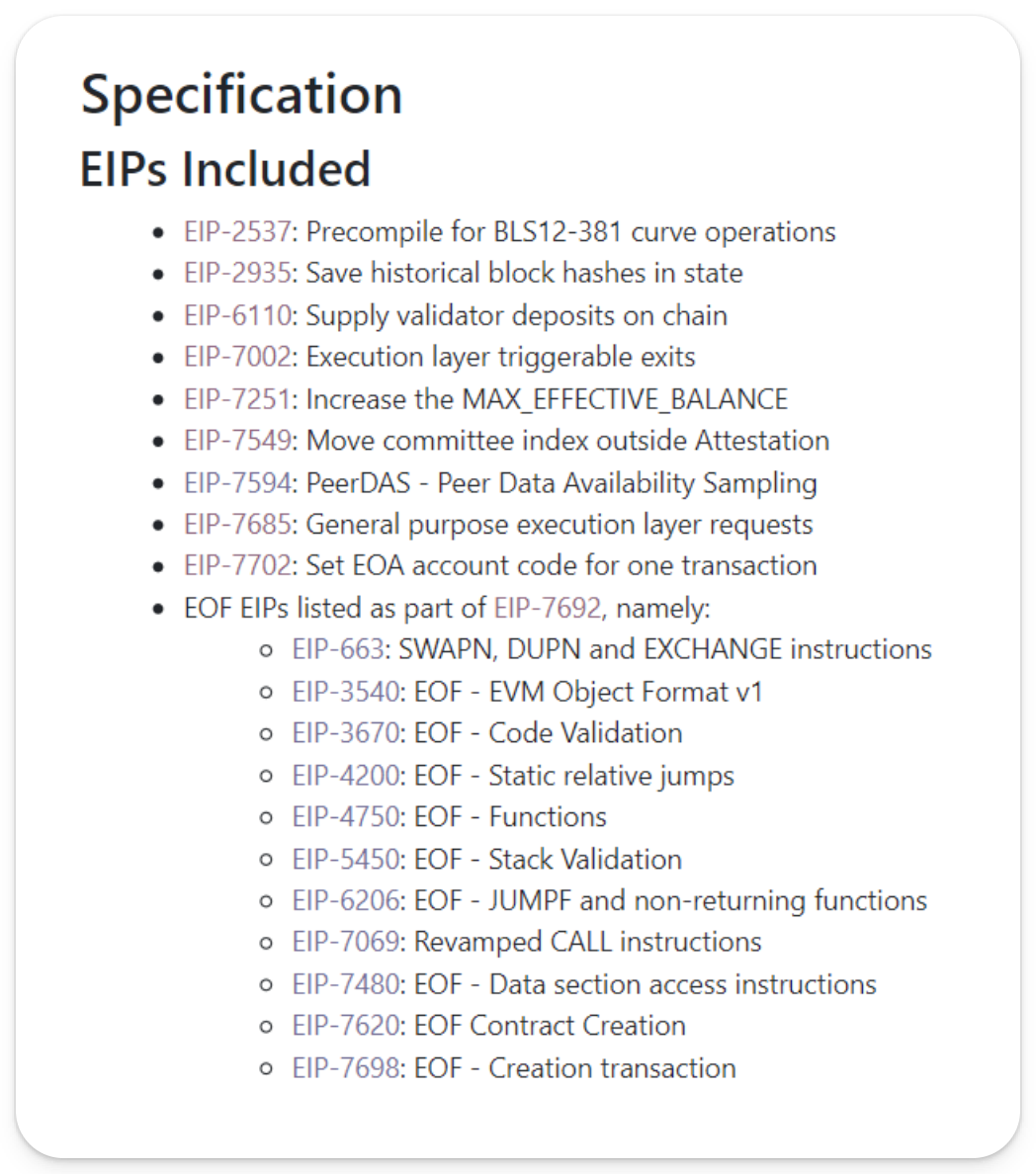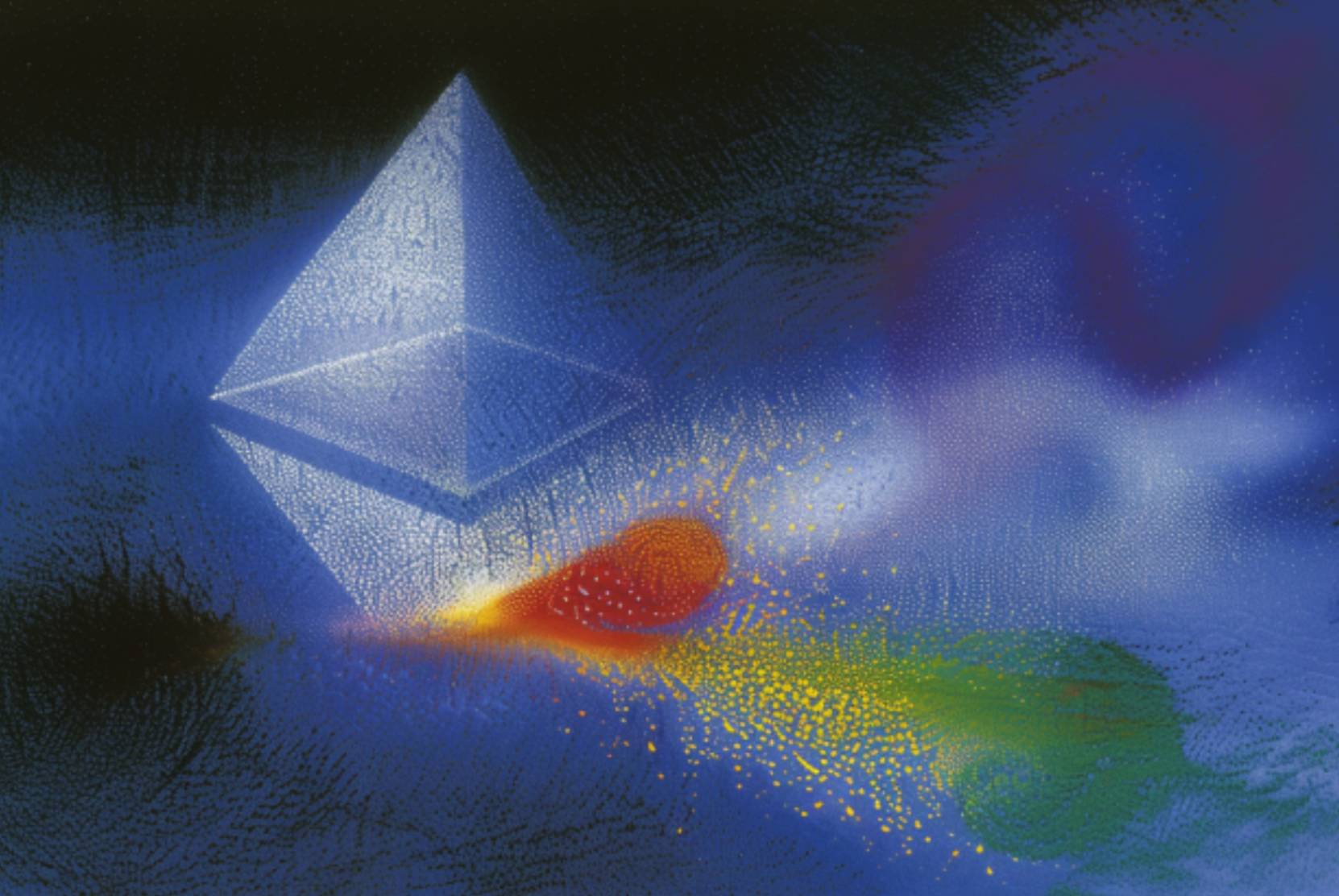Ethereum is always pushing forward.
In March 2024, the network rolled out its Dencun upgrade. A portmanteau of two specifications, “Deneb” and “Cancun,” Dencun was all about dramatically cutting Layer 2 (L2) transaction costs.
What’s coming next? Pectra is the next major Ethereum upgrade, and it’s set to be an even bigger deal than Dencun was.
Scheduled for Q4 2024 or Q1 2025, Pectra combines two previously planned upgrades: Prague (for the execution layer) and Electra (for the consensus layer). By merging these specs, Pectra aims to bring several ambitious improvements to Ethereum, making it more flexible and optimized than ever before.
Dencun Will Make Ethereum Cypherpunk Again on Bankless
Unpacking Dencun, EIP-4844, and Blobs.

What’s Pectra all about? We’ve got you covered
What’s included in Pectra?
Pectra is about more than one little upgrade; it’s chock-full of updates.
Ethereum Improvement Proposals (EIPs) are proposed modifications to Ethereum. They ensure network changes are discussed and agreed upon transparently, involving the community and core developers.
For the Pectra upgrade, nine Standard EIPs and one Meta EIP composed of another 11 constituent EIPs are currently slated for inclusion.

These EIPs include enhancements around account abstraction, validator operations, and overall network performance. Some of the most notable additions are as follows.
EIP-2537 — Introduces a precompile for BLS12-381 curve operations, making BLS signature operations significantly faster and cheaper, which improves the accessibility and performance of Ethereum validators and reduces gas costs.
EIP-2935 — Implements saving the hashes of previous blocks in special storage slots to enhance the efficiency and reliability of verifying Ethereum’s data ahead of stateless execution.
EIP-7002 — Allows validators to trigger exits and partial withdrawals via their execution layer withdrawal credentials, enabling more flexible options around restaking and staking pools.
EIP-7251 — Increases the maximum effective balance for Ethereum validators from 32 ETH to 2048 ETH, reducing the total number of validators needed and simplifying the network’s computational load.
EIP-7594 — Introduces Peer Data Availability Sampling (PeerDAS) to further optimize L2s, enhancing transaction processing and scalability.
EIP-7702 — Adds a new transaction type that sets the code for an EOA (Externally Owned Account) during one transaction, enabling regular wallets to temporarily transform into smart contract wallets for improved UX.
EIP-7692 — A Meta EIP composed of 11 constituent EIPs aimed at enhancing the EVM Object Format (EOF) for improving contract deployment and execution efficiency.
A new and improved Ethereum
Post-Pectra, Ethereum will cater to a broader range of use cases and user needs.
Regular Ethereum accounts will be more programmable, L2s will be more affordable, smart contracts will be more efficient, and validators will be more flexible to manage!
With these enhancements, Ethereum will be better equipped to handle increased adoption, integrate with other networks, and introduce new features that keep the platform at the forefront of onchain innovation.
What comes after Pectra?
While nothing is set in stone for now, the Ethereum community is eyeing the implementation of Verkle trees in the Osaka upgrade that will follow Pectra.
“I’m really looking forward to Verkle trees,” Vitalik said earlier this year. “They will enable stateless validator clients, which can allow staking nodes to run with near-zero hard disk space and sync nearly instantly — far better solo staking UX.”
That said, both of Ethereum’s next upgrades are poised to significantly enhance the chain’s usability for users and developers alike. Ethereum can’t be built in a day, yet slow and steady wins the race when it comes to building the future-proof everything network that Ethereum is actualizing into.
Read More: www.bankless.com










 Bitcoin
Bitcoin  Ethereum
Ethereum  Tether
Tether  XRP
XRP  Solana
Solana  USDC
USDC  Dogecoin
Dogecoin  TRON
TRON  Cardano
Cardano  Lido Staked Ether
Lido Staked Ether  Wrapped Bitcoin
Wrapped Bitcoin  Hyperliquid
Hyperliquid  Wrapped stETH
Wrapped stETH  Sui
Sui  Chainlink
Chainlink  Avalanche
Avalanche  Stellar
Stellar  LEO Token
LEO Token  Bitcoin Cash
Bitcoin Cash  Toncoin
Toncoin  Shiba Inu
Shiba Inu  Hedera
Hedera  USDS
USDS  WETH
WETH  Litecoin
Litecoin  Wrapped eETH
Wrapped eETH  Polkadot
Polkadot  Monero
Monero  Binance Bridged USDT (BNB Smart Chain)
Binance Bridged USDT (BNB Smart Chain)  Ethena USDe
Ethena USDe  Bitget Token
Bitget Token  Pepe
Pepe  Pi Network
Pi Network  Coinbase Wrapped BTC
Coinbase Wrapped BTC  WhiteBIT Coin
WhiteBIT Coin  Uniswap
Uniswap  Aave
Aave  Dai
Dai  Bittensor
Bittensor  Ethena Staked USDe
Ethena Staked USDe  Aptos
Aptos  NEAR Protocol
NEAR Protocol  Cronos
Cronos  OKB
OKB  BlackRock USD Institutional Digital Liquidity Fund
BlackRock USD Institutional Digital Liquidity Fund  Internet Computer
Internet Computer  Jito Staked SOL
Jito Staked SOL  Ondo
Ondo  Ethereum Classic
Ethereum Classic